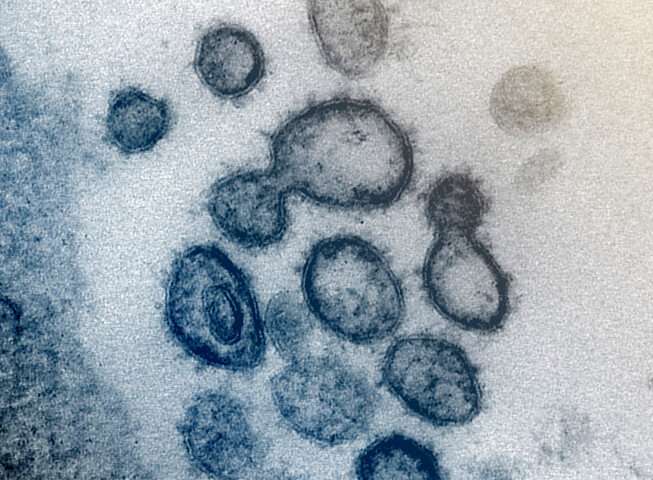
Two different types of detectable antibody responses in SARS-CoV-2 (COVID-19) tell very different stories and may indicate ways to enhance public health efforts against the disease, according to researchers at The University of Texas MD Anderson Cancer Center. Antibodies to the SARS-CoV-2 spike protein receptor binding domain (S-RBD) are speculated to neutralize virus infection, while the SARS-CoV-2 nucleocapsid protein (N-protein) antibody may often only indicate exposure to the virus, not protections against reinfection.
The results, published today in JCI Insight, highlight findings from a quantitative serological enzyme-linked immunosorbent assay (ELISA) using SARS-CoV-2 S-RBD and N-protein for the detection of circulating antibodies in 138 serial serum samples from confirmed COVID-19 hospitalized patients and 464 healthy and non-COVID-19 serum samples that were collected between June 2017 and June 2020.
Results showed that 3% of healthy and non-COVID-19 samples collected during the pandemic in Houston were positive for the N-protein antibody, but only 1.6% of those had the S-RBD antibody. Of samples with the S-RBD antibody, 86% had neutralizing capacity—meaning they could prevent reinfection of COVID-19, but only 74% of samples with N-protein had neutralizing capacity. When positive for both, 96.5% exhibited neutralizing capacity.
“These findings suggest that detection of N-protein binding antibodies does not always correlate with presence of S-RBD neutralizing antibodies, and that the presence of the S-RBD antibody is the best indicator of any potential protection against reinfection,” said senior author Raghu Kalluri, M.D., Ph.D., professor and chair of Cancer Biology. “We caution against the extensive use of N-protein based serology testing for determination of potential COVID-19 immunity, and we believe that accurate and reliable S-RBD serological testing is needed to carefully identify individuals with neutralizing antibodies in order to help advance recovery efforts around the globe.”
At present, some commercially available serological tests confirm only the presence antibodies to the N-protein, with over 200 commercial and hospital laboratory testing facilities currently using these tests. While these tests indicate exposure to the virus, they do not seem to suggest immunity to reinfection. These findings reiterate the need to educate on what an antibody test result mean for each patient, and that public health efforts should focus on ways to encourage patients to continue vigilant safety precautions even with the presence of N-protein antibodies.
“In addition to serological assessment of the general population, we are hopeful these results will aid in rapid assessment of the efficacy of vaccine candidates as they are translated into the broader population,” said lead author Kathleen McAndrews, Ph.D., postdoctoral fellow in Cancer Biology.
University of Texas M. D. Anderson Cancer Center

